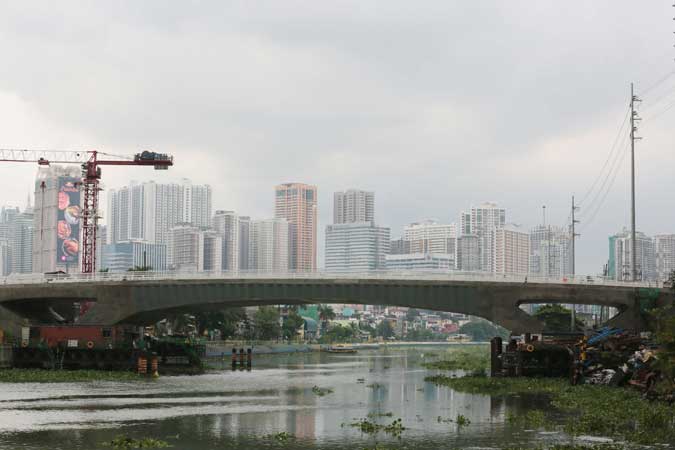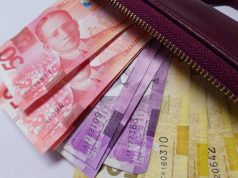Investor sentiment may be affected by Fitch’s negative outlook on PHL

By Luz Wendy T. Noble, Reporter
INVESTOR SENTIMENT towards the Philippines may be affected after Fitch Ratings lowered its outlook on the sovereign to “negative” from “stable,” analysts said.
Fitch Ratings on Monday affirmed the Philippines’ credit rating at “BBB,” which is one notch above the minimum investment grade, but gave a negative outlook as it cited economic risks from the pandemic.
“We think this outlook revision represents a material negative surprise to investors,” Nomura Holdings, Inc. Chief ASEAN Economist Euben Paracuelles and economist Rangga Cipta said in a note on Tuesday.
With the negative outlook, Fitch may downgrade the “BBB” rating in the next 12 to 18 months.
However, economic managers insisted the Philippine economy is on track for a rebound.
“The negative outlook flags the risks that we are aware of, and the economic team will continue to exert effort to open the economy safely, manage risks from COVID-19, accelerate vaccine deployment, prudently use fiscal resources, and enact the remaining economic and fiscal reforms to further improve growth prospects,” Socioeconomic Planning Secretary Karl Kendrick T. Chua told reporters via Viber on Tuesday.
Bangko Sentral ng Pilipinas Governor Benjamin E. Diokno said the drag caused by the pandemic on the Philippine economy is expected to be “transitory.”
Investors appeared to have a knee-jerk reaction to the news. On Tuesday, the Philippine Stock Exchange index shed 118.74 points or 1.71% to close at 6,795.13, with all sectors in the red. The peso closed stronger at P50 per dollar on Tuesday from its P50.12 finish on Monday. During the session, the peso fell to P50.30, the weakest since June 2020.
“We expect near-term pressure on all financial markets as the Philippines suffers its first setback in terms of its once sterling credit rating,” ING Bank N.V. Manila Senior Economist Nicholas Antonio T. Mapa said in an e-mail.
Colegio de San Juan de Letran Graduate School Dean Emmanuel J. Lopez said the lowered outlook was expected since the economy remained in contraction since the first quarter of 2020.
“The biggest stumbling block however is how do we bring back the trust of the business community that seems to have been tainted by the existing political priorities that have divided the attention of the government,” Mr. Lopez said in an e-mail.
For Mr. Mapa, the government should take this as a signal to ramp up support for the economy as previous efforts have “fallen short of expectations.”
“The solution to this problem may be to bloat the deficit via a sizable rescue package that will jolt the economic engines back to life,” he said.
The budget deficit stood at P1.371 trillion in 2020, more than double the P660 billion shortfall in 2019. Last year’s fiscal gap widened to 7.63% of the gross domestic product (GDP) from 3.38% in 2019.
Economic managers have already rejected a P401-billion stimulus measure proposed by lawmakers. This year, the budget deficit is capped at P1.856 trillion or 9.3% of GDP.
“The government has been providing limited fiscal support measures, relative to its regional peers, even during lockdown periods. One could argue that this fiscal conservatism was partly due to the cabinet’s economic team trying to minimize ratings pressures,” Mr. Paracuelles and Mr. Cipta said.
Based on the International Monetary Fund’s policy tracker as of July 1, fiscal support in the Philippines coming from the two stimulus packages, Bayanihan I and II, was equivalent to 4.4% of the country’s gross domestic product (GDP) in 2020.
In its latest assessment, Fitch noted how the pandemic weakened the country’s fiscal metrics given its higher debt levels which is expected to go beyond the median increase for BBB-rated peers. It said an important consideration for the country’s rating will be the evolution of its fiscal deficit and debt levels and how it will balance fiscal consolidation to support economic recovery.
House Ways and Means Chair Jose Maria Clemente S. Salceda is optimistic the outlook on the Philippines will be stable again once the government completes its tax reform program.
“We should also reach for very low-hanging fruits such as the POGO (Philippine offshore gaming operators) tax regime and the e-sabong tax regime. President [Rodrigo R.] Duterte himself said that these areas can be revenue generators,” he said in a statement.
Finance Secretary Carlos G. Dominguez III has said the quicker vaccine rollout will help the economy recover faster, with fiscal consolidation expected by the time the virus is better contained and spending is normalized.



